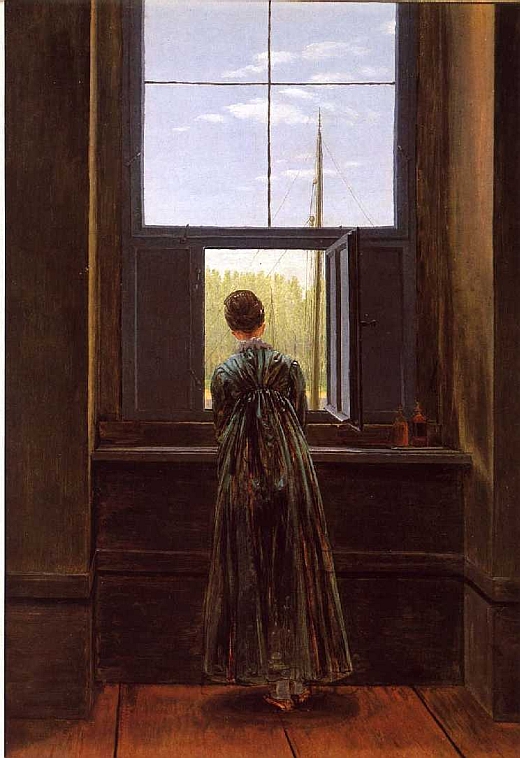
Catherine assented — and a very warm panegyric from her on that
lady’s merits closed the subject. The Tilneys were soon engaged
in another on which she had nothing to say. They were viewing
the country with the eyes of persons accustomed to drawing, and
decided on its capability of being formed into pictures, with all
the eagerness of real taste. Here Catherine was quite lost. She
knew nothing of drawing — nothing of taste: and she listened to
them with an attention which brought her little profit, for they
talked in phrases which conveyed scarcely any idea to her. The
little which she could understand, however, appeared to contradict
the very few notions she had entertained on the matter before. It
seemed as if a good view were no longer to be taken from the top
of an high hill, and that a clear blue sky was no longer a proof
of a fine day. She was heartily ashamed of her ignorance. A
misplaced shame. Where people wish to attach, they should always
be ignorant. To come with a well-informed mind is to come with an
inability of administering to the vanity of others, which a sensible
person would always wish to avoid. A woman especially, if she have
the misfortune of knowing anything, should conceal it as well as
she can.
—Jane Austen, Northanger Abbey vol. 1, ch. 14 (1803)


